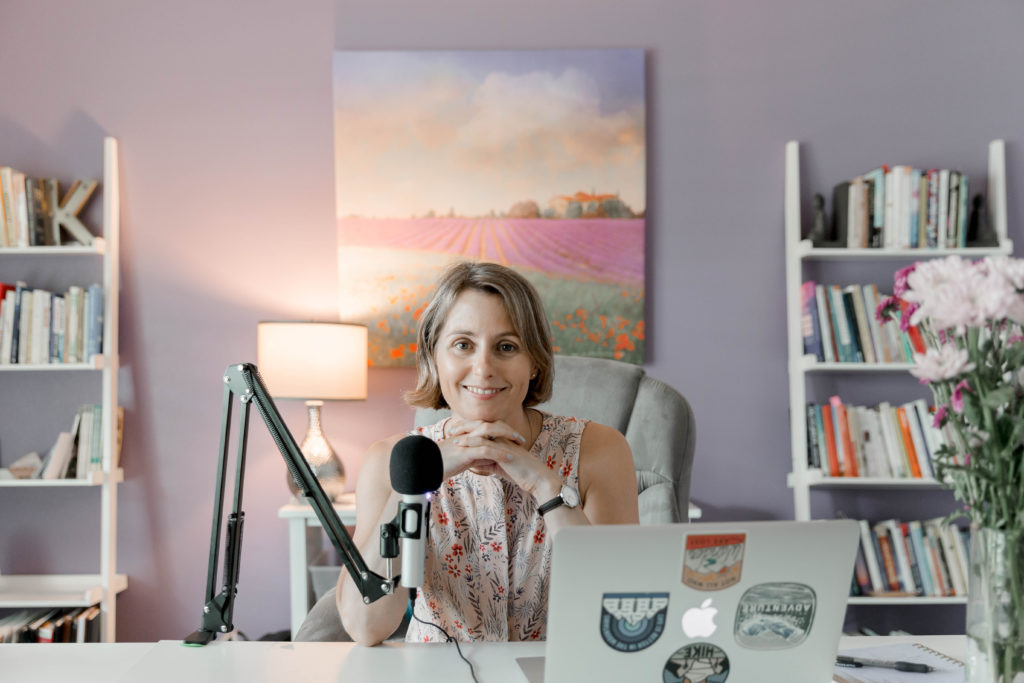Our work and the jobs we do in the world are fertile ground for discontent. For those of us who meet Monday morning with a sense of gloom, even dread, our work life can be a source of angst, disappointment, stress and dissatisfaction. And yet, we each will spend about a third of our lives working. Yes, it’s true not all of us do what we love for a living, but we owe it to ourselves to feel satisfied and not simply endure decades of work in order to get to retirement when we can “really start living.” There’s no such thing as a happiness layaway plan; we are meant to feel happy and fulfilled today.
In our pursuit of a more mindful life, we ought to place as much emphasis on how we do what we do versus what we do or the results we produce. Who we are being while we do our work impacts not only how we feel, but also how we make others feel.
These days, it seems as though the point to work is to get as much done as possible and make as much money as possible. What gets lost in that equation is the real point to work: to have our lives be enriched by the contribution we make in the world.
By slogging away at work, trying to cross off everything on an infinitely endless to-do list, are we really enriched by our work in the world? We lose ourselves in our doing. We create stress and lose access to the present, which is where we find our creativity, wisdom and intuition.
In a relaxed, open and mindful state, we regulate ourselves, we see more clearly, we better prioritize, and we relate to others with more patience, humility and kindness. Conversely, in our mindlessness, we weaken our ability to manage ourselves, consumed instead with managing tasks, deadlines, outcomes and other people.
This is why mindful work pauses are critical if we are to cultivate more awareness and ease at work. A pause could be just a few moments, such as a mini-break between tasks, or it can be a quiet lunch or a walk around the block.
Mini-Pauses
Using a tool such as a timer, smartphone reminder, calendar alert or hourly chime, you can create an invitation to pause periodically throughout your day. Upon hearing the prompt, stop what you’re doing, take a few mindful breaths, and ask yourself these questions: How do I feel? What could I shift? What is my state? Who am I being in this moment?
A few words of warning: It’s easy to grow immune to reminder prompts. As you build your anchor for this pausing habit, aim to switch it up from week to week. Otherwise, you may find yourself ignoring your cue.
Schedule Pauses
You can also schedule pauses in your day between tasks and meetings. I call these buffers. Let’s say you schedule a 60-minute meeting in your calendar. To build a buffer, schedule a five- to fifteen-minute pause into your calendar immediately following the meeting. Stand up and go for a short walk. Close your eyes and take a few breaths, or do some box breathing. Stretch. Drink a big glass of water. Resist the urge to scroll through our phone.
Take a Lunch Break
I’ve had two interviews on 60 Mindful Minutes with advocates of a true lunch break (Episode #26 with Laura Archer and Episode #185 with Cheryl Johnson). The point they both make is that a lunch break isn’t’ an indulgence; it’s a necessity. Our minds need the break and our tummies need the nourishment.
Lunch breaks are becoming a rarity. A study conducted by OnePoll found that 51 percent of Americans feel that a lunch break is rare and unrealistic, with 30 percent of study respondents reporting that they regularly opt to eat lunch at their desk instead. For those who do take a break, the lunch “hour” is basically a dinosaur at this point.
Breaking for lunch can feel like an unproductive indulgence when we don’t see or understand the benefit it provides. Besides giving us the opportunity to refuel our bodies, the mental rest we give ourselves can improve performance capacity, boost our moods and increase our energy, according to the American Psychological Association.
Take a lunch break. Leave your workspace and eat with colleagues. Go for a walk outside. Read a book. Close your eyes and feel your body wind down. Shoot for at least thirty minutes.
It might be helpful to find a colleague who can serve as both your lunch date and accountability partner. If this is a new or challenging habit, start by committing to just one day a week and grow from there.
A healthy life is less like a marathon and more like a series of sprints. We’re not designed to continuously, day after day, slog on and on until we drop at six o’clock. We’re meant to distribute our energy reserves with pulses of sprints and rests throughout the day. Pauses to rest and refuel are what give us the power and stamina to do our best work.
________________________________________________________________
ABOUT KRISTEN MANIERI (COACH, HOST OF 60 MINDFUL MINUTES)
Kristen Manieri is a coach who works with teams to increase both productivity and wellbeing. She also helps individuals navigate transition with clarity and confidence. Her areas of focus are: stress reduction, energy management, mindset, resilience, habit formation, rest rituals, and self-care. As the host of the weekly 60 Mindful Minutes podcast, an Apple top 100 social science podcast, Kristen has interviewed over 200 authors about what it means to live a more conscious, connected, intentional and joyful life. She is the author of Better Daily Mindfulness Habits: Simple Changes with Lifelong Impact. Learn more at kristenmanieri.com/work-with-me.
